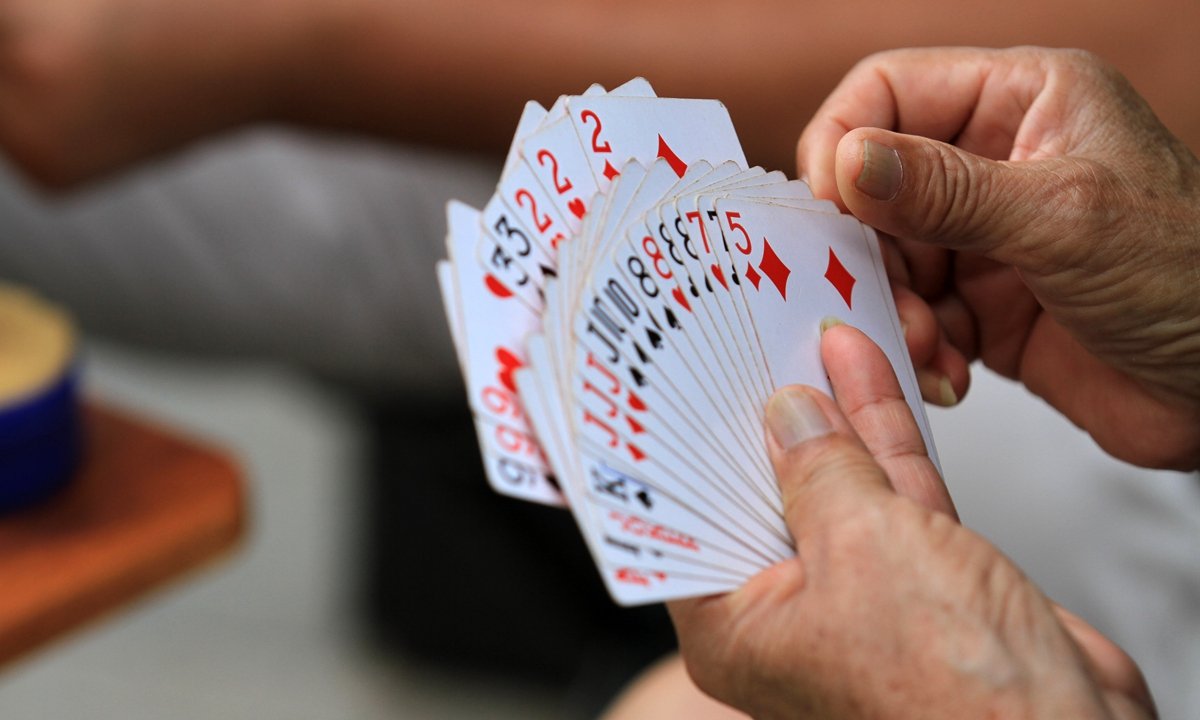Guandan, often translated as “throwing eggs,” is increasingly becoming China’s favorite card game. With roots in East China’s Jiangsu Province, this fixed-partnership climbing card game for four players has seen a massive surge in popularity due to its straightforward rules, competitive spirit, and social significance.
Using two decks, the objective is simple: players aim to lay down progressively higher combinations of cards to empty their hands before their opponents. The game permits various combinations such as singles, pairs, triples, full houses, and straights. Adding depth to the gameplay are unique combinations known as plates and tubes, which signify consecutive pairs or consecutive triples.
Guandan’s appeal extends beyond casual post-dinner gaming sessions. In fact, it’s set to make its debut at The Fifth National Mind Sports Games in Hefei, Anhui Province, joining other prestigious games like Chinese chess, bridge, and the board game “five in a row.”
The General Administration of Sport of China (GASC) holds the National Mind Sports Games every four years. The event showcases various mind games including bridge, five in a row, weiqi, chess, and checkers, among others. Wang Jianxin, who is associated with GASC, highlighted that the nation has witnessed tens of millions of citizens taking up guandan. Its simplicity combined with the requirement for strategic teamwork makes it both entertaining and competitive.
By mid-2022, GASC reports had confirmed that Guandan was not just an entertaining pastime. It actively promotes memory enhancement, problem-solving abilities, analytical thinking, and cooperation among players. Yu Na from the Jiangsu Guandan Sports Association shared insights from a 2021 report which estimated that over 130 million people in China are enthusiasts of the game. The provinces of Jiangsu and Anhui alone contribute to more than 50 million of these fans.
Its popularity isn’t confined within Chinese borders. Countries such as Canada and Australia are catching the Guandan fever. A recent national tournament in Shanghai witnessed 72 teams battling for the title. Such events reiterate the game’s capability to foster sportsmanship and introduce a new socializing platform.
Interestingly, the game is carving a niche in the business world too. Guandan is quickly replacing Texas Hold’em in the financial sector as a favored networking tool. Guo Hai, an investment consultant, remarked that while Texas Hold’em celebrates high risk and individualism, Guandan aligns better with the Chinese finance sector’s values of calculated risks and teamwork.
Additionally, unlike many poker variants, Guandan does not involve money trading, making it a purer form of competition. This game has become the go-to icebreaker among stakeholders, especially local officials in charge of financial projects.
Reflecting its widespread acceptance, Citic Securities, a leading Chinese securities company, even included a Guandan strategy manual and decks of cards in a special gift box for its customers.
As Guandan’s popularity grows, there are efforts to formalize the game. With pilot projects and plans for universal rules, the aim is to turn this grassroots passion into an official sports event. The vision is to see Guandan alongside other esteemed games, bridging the gap between traditional Chinese culture and modern card games.
Endeavors are underway to host more national tournaments, and if Guandan gets recognized as an official sport at national games, it would undoubtedly solidify its cultural significance, extending its influence far beyond its current reach.
READ MORE:
